
Future-proofing your EU funding strategy for the post-2027 period
Preparing for EU funding for the post-2027 period? Learn what organisations can do now to align with policy shifts, build partnerships and strengthen readiness.
For writing a convincing EU proposal in response to an EU Call for Proposals, a well-thought-out project planning is a prerequisite. In this article, get important insights how to plan your work packages, milestones and deliverables proficiently so that you meet the EU evaluators’ expectations.
When planning the work packages, milestones and deliverables for an EU project proposal, it’s essential to have a clear structure and planning of your project in place before starting to write your proposal. When you are developing your project plan, you already need to pay attention to the European Commission’s expectations for an EU project such as in particular the added value of your project, its impact, and a smooth and efficient implementation. This article addresses how to approach your project planning accordingly.
Work Packages break down the project into manageable tasks and targets. Each work package represents a key activity area that will contribute to the overall objectives of your project.
To start, define your project’s components. Identify the major activities of your project, which are necessary to reach the intended impact, value and usefulness for your project’s determined beneficiaries. Then allocate these to distinct work packages.
Firstly, you will most probably have a separate work package on project management, including for coordination and administration tasks as well as the periodic reporting of the project for the European Commission.
Moreover, you will need work packages for the technical work of your project, i.e. activities which are necessary to achieve the project’s specific goals. Examples are a work package on citizen engagement activities, or on training and capacity building (within a CERV proposal), or a work package on the development of a prototype (in Horizon Europe or the LIFE Programme).
It will also be beneficial to assign a dedicated work package for communication and dissemination in your proposal. The EU usually explicitly requires a dissemination and communication strategy as part of project proposals, especially for programmes like Horizon Europe, LIFE and CERV. The European Commission assigns significant importance to the dissemination and exploitation of project results to maximise the project’s impact in order to ensure the uptake of the results by relevant stakeholders to enhance the projects’ sustainability.
Some further tips how to proceed when you are planning your work packages:
Finally, make sure that the work package align with the project’s overall goals and that they contribute to the expected impact and those EU priorities that are relevant to the Call for Proposal you are applying for. Therefore, the work packages should include activities that generate innovative solutions, recommendations, societal benefits etc. – in line with the Call’s requirements.
Let’s summarise and break down the different components and their purposes in a project: Work packages are the main overall components of the project, fulfilling the project’s objectives. Milestones act as markers for progress, for example at the completion of a work package or after an important deliverable is produced. Associated means of verification (e.g. attendance sheets, photos, feedback forms, presentation materials, etc.) provide the necessary supporting evidence to demonstrate that the milestone has been reached. Deliverables are concrete project outputs.
As a concrete example, for a work package on “Needs Assessment for Vocational Training in Mechanics” we could have:
In order to develop a compelling EU funding proposal, it is crucial to ensure coherence between your work packages, milestones and deliverables. Each of them should clearly demonstrate that the project will deliver measurable impact in line with the objectives of the Call for Proposal and the related EU programme.
A clear work plan with well-structured work packages, achievable milestones and concrete deliverables will make your proposal better and more competitive.
Wishing you lots of success with your project proposal!
Are you planning to apply for Horizon Europe funding? Check out the new free resource to help you write clear, evaluator-aligned proposals that score higher: Horizon Europe Strategic Proposal Language Toolkit
In case you would like to get support for drafting your EU funding proposal, please don’t hesitate to get in touch via this link.

Author: Astrid Mechel
https://eufundingconsulting.eu
Hello, I am Astrid Mechel and I work (for the most part) with small and medium sized organisations who aim to access EU funding. It is my goal to help discovering suitable EU project funding possibilities and to provide support to submit a high-quality grant application. My main thematic focus is on grants for research and innovation, environmental sustainability as well as on social inclusion and participation.
Read more articles here:

Preparing for EU funding for the post-2027 period? Learn what organisations can do now to align with policy shifts, build partnerships and strengthen readiness.

EU project funding for nonprofits: Discover 6 misconceptions that hold organisations back and how to turn them into opportunities for growth and impact.

Applying for EU funding can be a complex and challenging. This article offers 12 practical tips to help you avoid the most common stumbling blocks.
Online Workshop
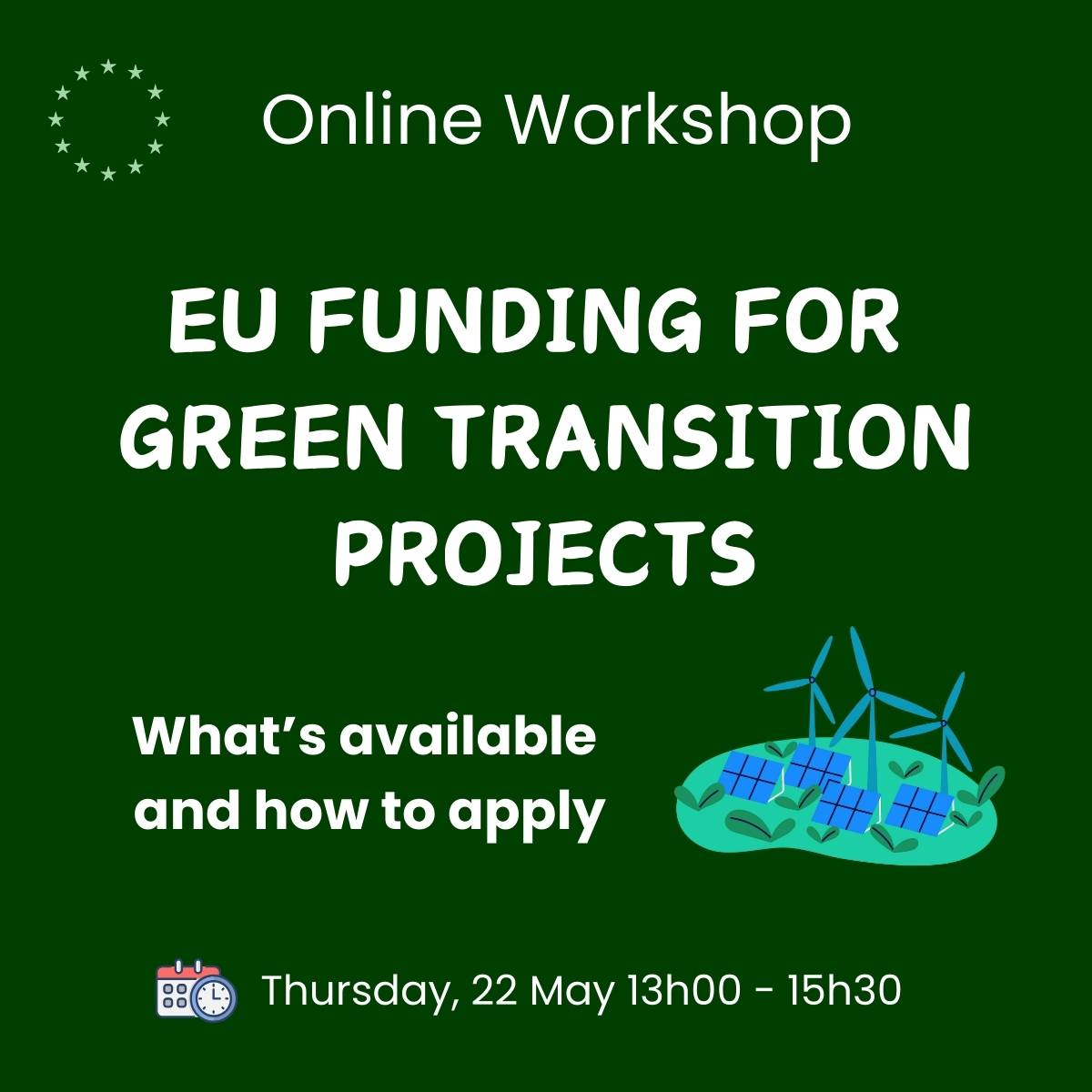
Interactive Live Workshop
On 22 May 2025 from 13h00-15h30
Registrations are closing soon
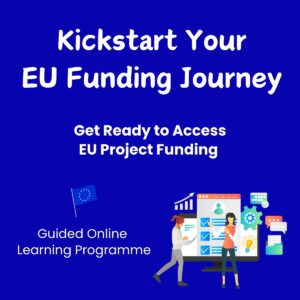
Curious about EU funding and how it could support your next project? Join the new live programme round for a compact and easy-to-follow way to get started with EU funding.
Key Terminologies – Application Guidance
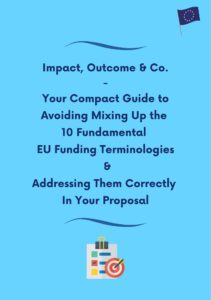
This guidance compares and compare and clarifies the 10 key terminologies within an EU funding application. How should you address them in your proposal, and what kind of information belongs to which one of them?
Online Workshop on 6 November!
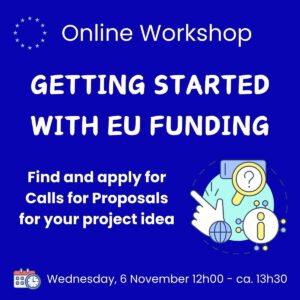
The workshop “Getting Started with EU Funding” is for participants with no or very limited experience in EU funding. Discover what kind of projects the EU is funding, the requirements and how you can apply for funding in your thematic field.
EU Funding Checklist
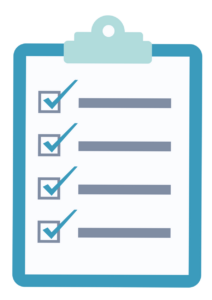
Do you have a new project idea and are wondering if EU funding could be available for your project?
This checklist will guide you through the most important questions to be considered when applying for EU project grants and includes some further suggestions how you could adapt your concept to be more in line with EU expectations regarding fundability.
Get the brand new upgraded guidance booklet (free offer):
Your compact guide on how they work and how your organisation can apply for funding
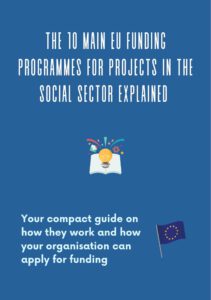
Find out which 10 EU programmes offer grants for projects in the social sector, what the conditions for funding are and how you can apply.
Online Workshop
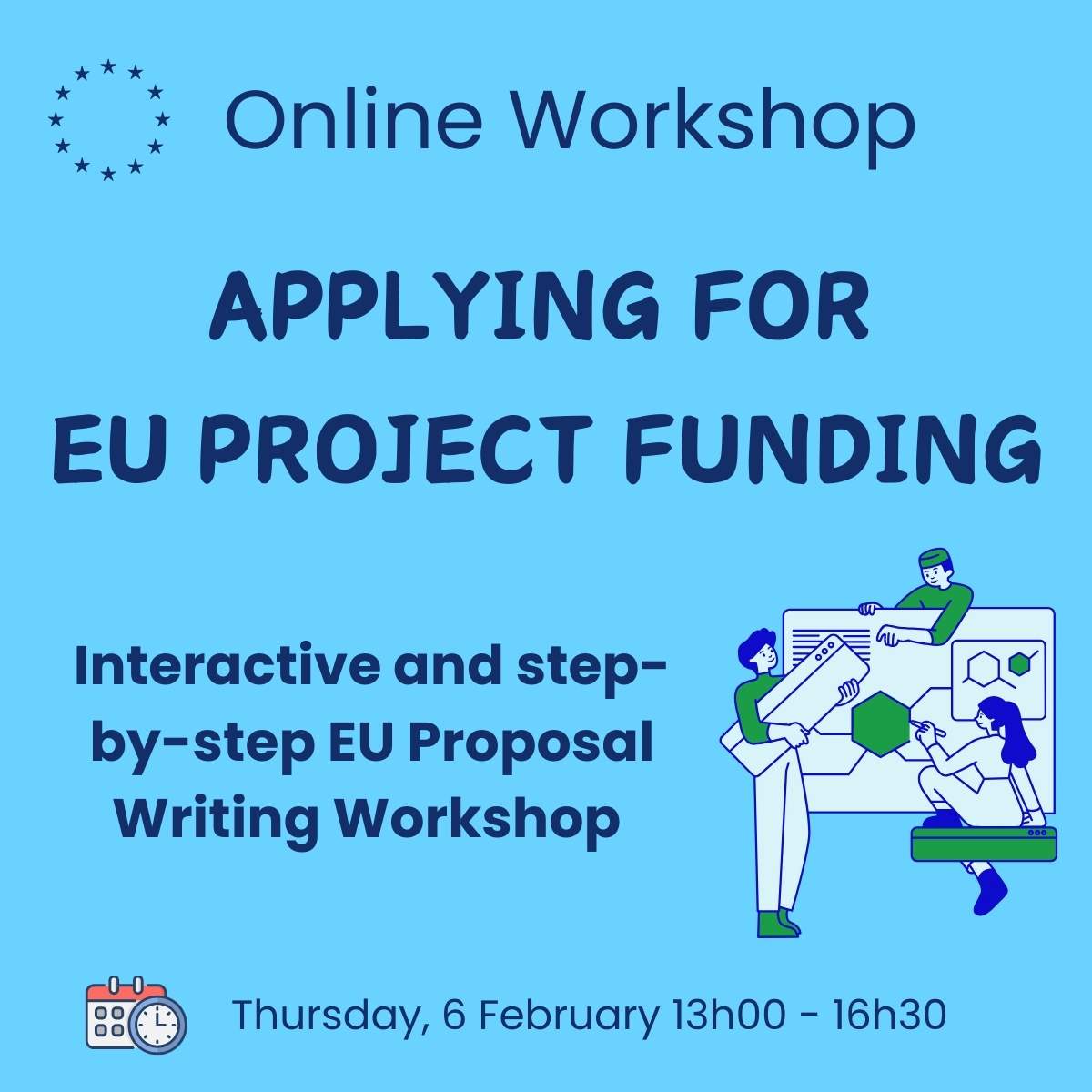
Interactive and step-by-step EU Proposal Writing Workshop
On 6 February 2025 from 13h00-16h30